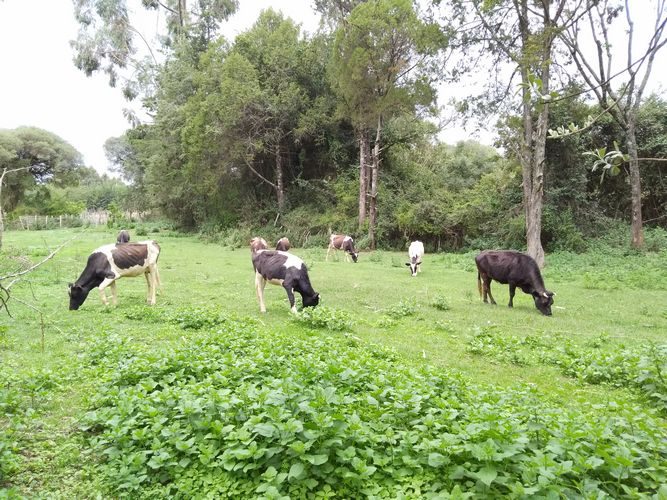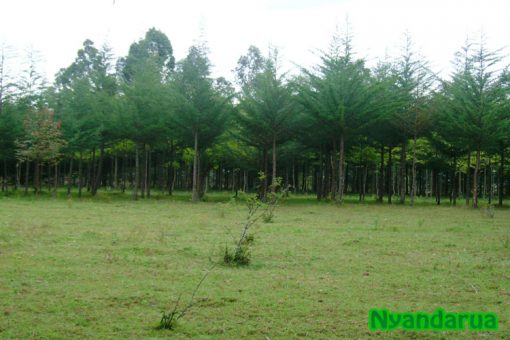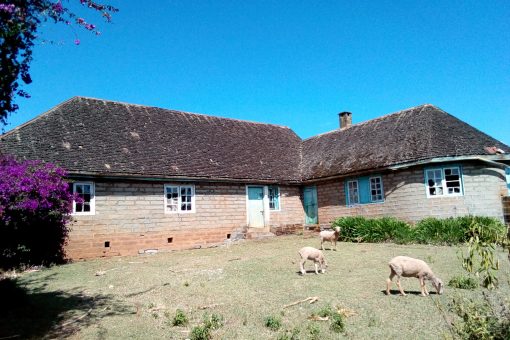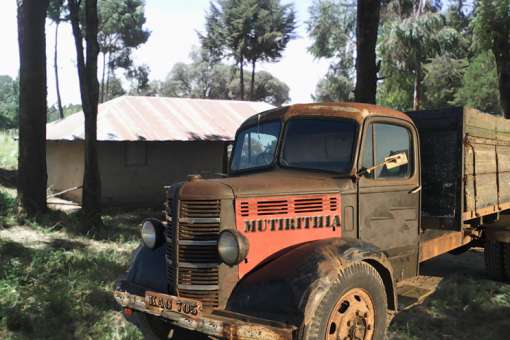OlKalou had only two butcheries. One was exclusively for beef, while the other one sold goat meat only. The one that sold beef was owned by a Mr. Gitonga Muchiri, a well built light skinned man who originated from Nyeri; you could tell from his heavy accent.
As kids, we knew the only meat to ask for at the butchery was “Huutiro or Gichiri”, I think Huutiro is the marbled Chuck Roast piece that borders the ribs (Mbaru). Gichiri was the shoulder blade. The bone was flat and thin, its rounded edge was a flexible whitish chewable cartilage. In my family, whoever got that bone in their food, enjoyed it so much, chewing it with a crunch, our dogs must have wondered if a canine was allowed into the house for dinner. Both Huutiro and Gichiri were always delicious, and that is what I still look for when meat shopping.
Gitonga owned a yellow Datsun Pick Up truck that fetched meat daily from the Slaughterhouse (Githinjiro) at the edge of town towards the Catholic Church. He had two sisters, Wangechi and Njoki who owned stalls in the market, selling produce and cereals. Wangechi was more famous because her son Maina was one of those who pioneered in Nissan Matatu operation before the formation of Nuclear Line. Everybody knew him as Maina wa Wangechi.
Gitonga unfortunately passed away in the 1970s and his butchery business closed.
Kabiti – Ithe wa Joshua: The business gap left by Gitonga was filled by a young man named Kabiti, the one we all know today as the successful owner of Bullhead. His butchery was opposite his current site of business, at a corner shop near the KFA shop. He was a young man of quiet demeanor, greeting customers respectfully and cutting their meat of choice without sneaking in a huge bone while you are not looking like most butchers tend to do. He always had very good meat. As he chopped, weighed and wrapped the meat, his young beautiful pregnant bride received the money from the customer. I remember my mother commenting “nawe Kabiti ena kahiki gathaka ii, gekuhenia ta riua” translation, “Kabiti has such a beautiful bride, she shines like the sun”. And shining she did. She was always quiet with a beautiful shy smile as she attended to her customers. She is the Nyina wa Joshua we still see beside her husband, tending to the massive business they started in very humble circumstances back in the 1970s.
Kabiti and his wife are not the generation of our parents, but they have remained business icons of OlKalou, contributing to the growth of the town every step of the way. They are still serving OlKalou customers as we speak and for that, I appreciate them very much. Niwega Nyina na Ithe wa Joshua.




